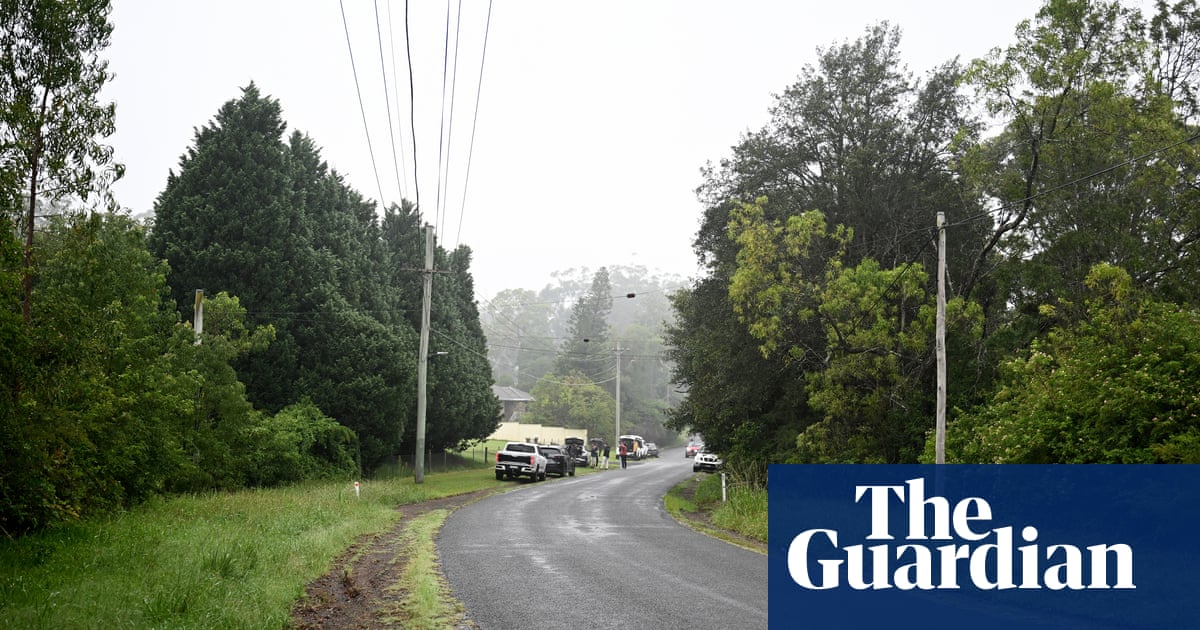Top-level briefings about a potential terrorist plot involving a caravan of explosives were not documented, with some treated as “pens-down” meetings, aNew South Walesparliamentary committee has been told.
The second hearing of the inquiry examining the relationship between the Dural caravan discovery – subsequently determined to bea “fake terrorism plot”– and the passing ofhate speech and anti-protestlaws in late February was held on Thursday.
Witnesses from the Premier’s Department and Cabinet Office gave evidence.
Somecrossbench MPs argue that they were “misled”when the laws were rushed through state parliament to criminalise people making racist remarks and give police broad powers to restrict protests “near” places of worship.
Sign up for Guardian Australia’s breaking news email
The legislation was passed on 21 February – the same day the police internally, but not publicly, ruled out the caravan being terrorism-related. Police announced itwas a “con job”on 10 March.
The secretary of the Premier’s Department, Simon Draper, said on Thursday that minutes had not been taken during police briefings with the department regarding the caravan – found by police on 19 January containing the explosives alongside a list of Jewish targets – because they were “not decision-making briefings”.
The Liberal MLC Susan Carter asked Draper: “So everybody relies on their memory, and there’s no notes taken of briefings about something as important as a caravan full of explosives?”
Draper replied that the briefings were not “being held to record a decision … they’re for information, that’s all”.
He said it was not the practice to produce minutes for every discussion within the government.
When asked by Carter when a meeting was important enough to be minuted, Draper said it depended on the “formality of the discussion”.
The inquiry wasn’t told which Premier’s Department staff attended police briefings on 3, 4, 5 and 7 February – other than that some were attended by the premier’s chief of staff.
“There’s no Teams meeting records or … could you ask the premier to provide that information?” the Greens MP Sue Higginson asked.
When asked if the premier, Chris Minns, could ask his staff who might have been in attendance, Draper said: “I’m happy to take it on notice.”
During the inquiry’sfirst hearing in April, the deputy police commissioner David Hudson said he had raised alternatives to the caravan being a terrorist plot at a press conferenceand in a radio interviewthe day after the discovery was revealed publicly on 29 January.
Kate Meagher, a deputy secretary of the Premier’s Department, was at a meeting on 23 January with Minns and Hudson.
The meeting contained “closely held information” and was “pens-down”, she said.
Sign up toBreaking News Australia
Get the most important news as it breaks
after newsletter promotion
When asked what was said in the meeting about potential alternatives to the caravan being terrorism-related, she said she could not recall a discussion about alternatives.
“It was being described as early in the investigation and being considered multi-jurisdictionally and under the joint counter-terrorism arrangements,” Meagher said.
She could not recall whether the premier had sought any advice about what he should do about informing the public.
Draper said he was not involved in any discussions about alternatives to terrorism and that he did not know the caravan was a “con job” until 10 March, when police revealed publicly thatthe caravan was part of a “fake terrorism plot”allegedly orchestrated by organised criminals for personal gain.
A 17 February report in theSydneyMorning Herald stated that police, from the outset, “said that there were puzzling elements to the case and raised the possibility it was a setup by criminals to negotiate jail time”, the Libertarian MLC John Ruddick told the inquiry on Thursday.
“It was well known there were murky details around these laws,” he said. “I’m guessing there wasn’t any discussion because we just wanted these laws passed.”
Twenty-one days after the caravan’s discovery was made public, the laws were introduced to parliament. They were passed a few days later, “which is quite quick in my view”, Ruddick said.
Briefings on the legislation in response to a spate of antisemitic attacks were first held in December, a month before the caravan was found, the Cabinet Office secretary, Kate Boyd, told the committee on Thursday.
The committee chair, the independent MLC Rod Roberts, told the hearing he had “serious and grave concerns” about some witnesses attempting to avoid appearing before the committee.
“It is apparent there has been attempts by some to hinder and frustrate the work of this committee by declining to attend using spurious and tenuous arguments,” he said.
“One would think that an accountable government would willingly cooperate with a Legislative Council committee and not proffer weak and insubstantial assertions as reasons not to attend and cooperate.”
